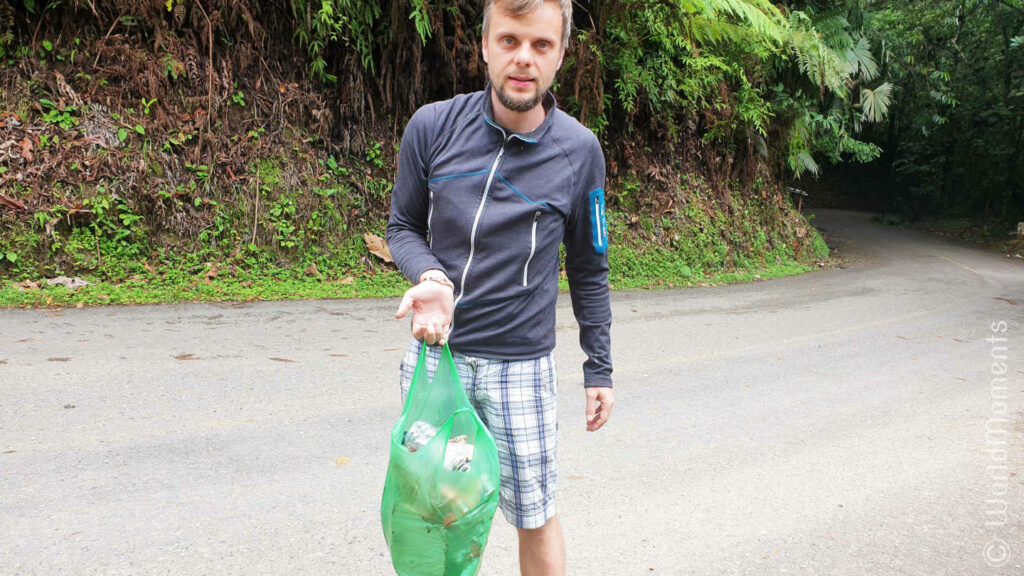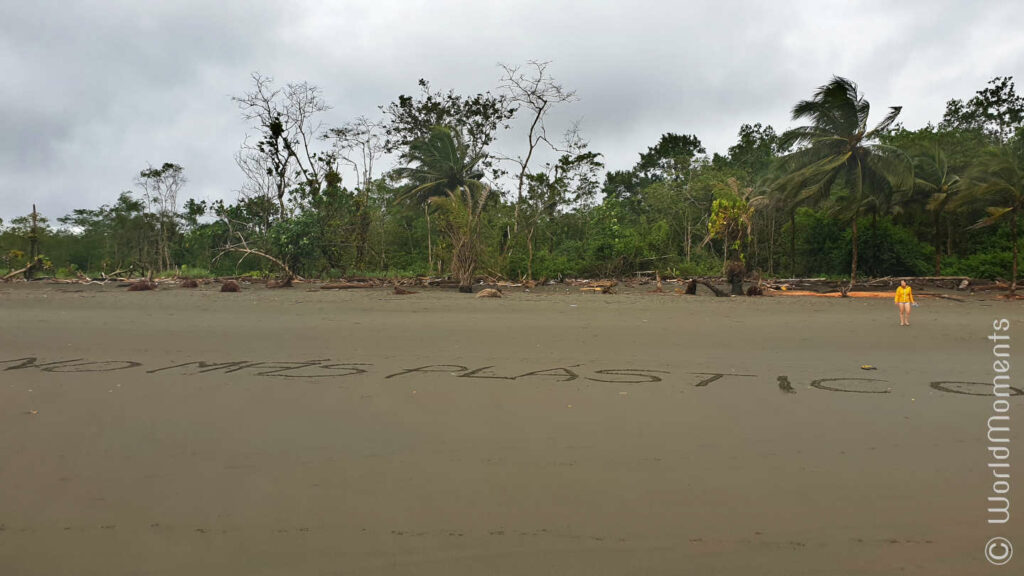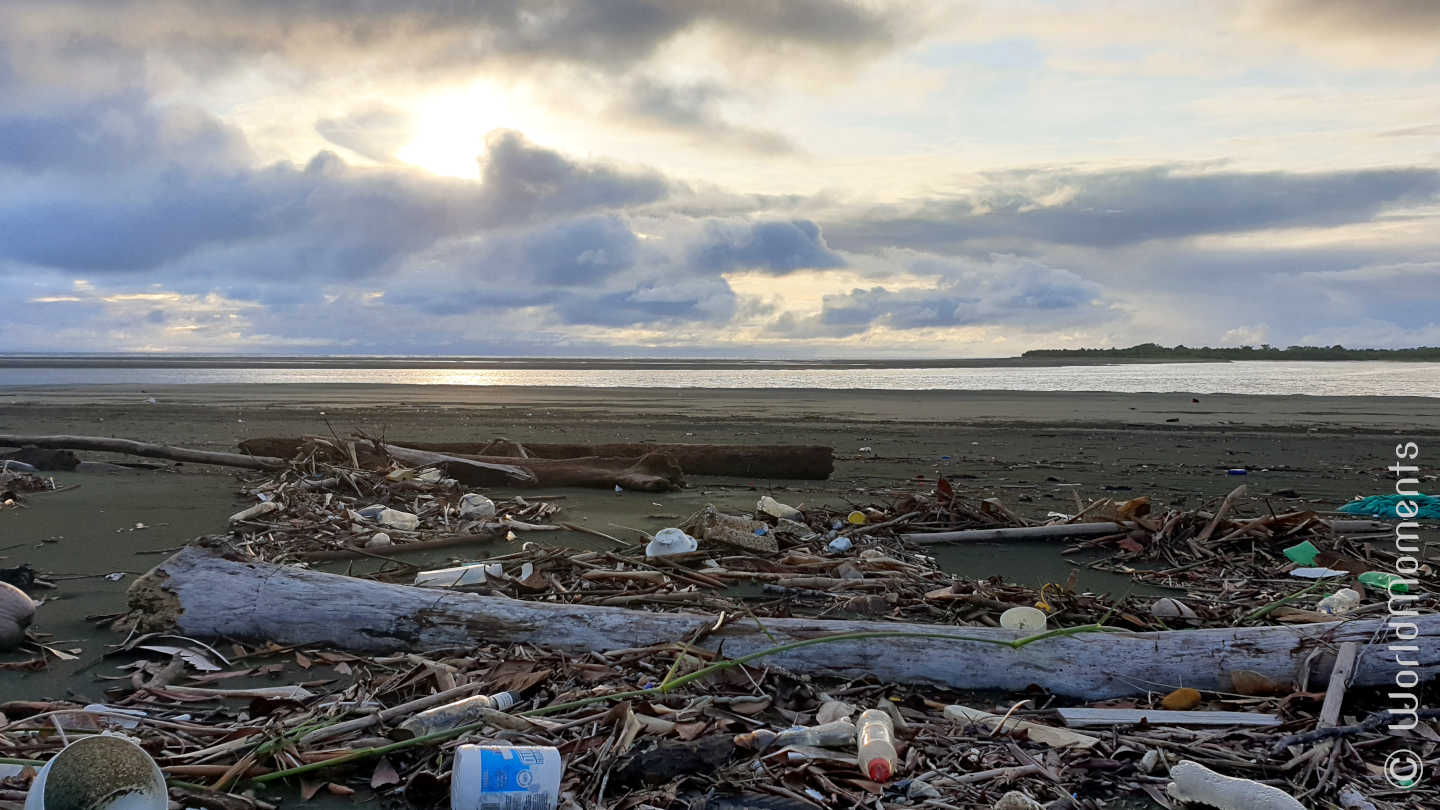5 tips to reduce plastic waste and why it is so important
Most times when you travel you visit places, which leave you with the impression of a healthy world. Beaches are cleaned, and trash bins for plastic waste are all over the place (often even if the country does not offer a proper recycling system for plastics). All will be done to leave the tourist with a good feeling, while he or she enjoys a cool lemonade served in a plastic bottle.
But in my travels during the last years, I tried not to close my eyes and look beside hotel resorts or well-visited tourist spots. What I discovered often shocked me.
That’s why I like to share some of my thoughts about plastic waste and 5 easy tips everybody could do, in order to reduce plastic waste.
How I thought 5 years ago about the plastic waste problem
If you would have asked me five years ago about my feeling and thoughts about waste management in different parts of the world – I probably had said:
- There are parts of the world e.g., South America, where people care less about waste management. (I personally have walked through plastic waste at the beaches of Moro de Sau Paulo, about 4 kilometers away from the main touristic beaches or outside the national parks of Costa Rica.) I thought this is the biggest part of our plastic waste problem.
- Western Countries like Germany, Austria, and France do a pretty good job of recycling. Most natural places are very clean and do not show signs of trash.
Who is responsible for the plastic problem?
Today I think a bit differently about it. Yes – Germans, Austrians, or French to name just a few nationalities – might be in general more aware of the fact, that it is bad to dump its candy paper just into the next corner.

Collecting plastic waste at Rio Tasajo close to Samana Caldas, Colombia.
And there are indeed regions e.g., the coastal areas of Colombia, where lots of inhabitants do not really care about depositing their trash. You find plenty of it just in front of their doors, on walkways, or on beaches. To name just one example: recently we visited the beaches of a Colombian national park about 40 kilometers north of Buenaventura, Bahia Malaga: see more about what literally shocked us during our travels in this video.
But what did I learn in the last years about plastic waste?
I simply got aware that the colorful commercials I have seen in the past about recycling and reusing plastics are not quite true. Because they left me with the good feeling that my trash will be reused. In fact:
1. Plastics can be recycled a maximum of 2 times. The process needs toxic chemicals and is difficult and expansive.
2. More than half of all plastic waste (53%) was burned in Germany in 2018. Due to new laws, this rate is going down but still will be around 37% in 2022. In Colombia, 93% of plastic waste was not recycled in 2019.
3. Did you know that Germany exports in 2020, about 1 million tons of plastic waste and is responsible for 29 % of the global plastic waste export? Why? Recycled plastic made in Germany is about 25% more expensive than just producing a new one, due to high salaries and processing costs: Wow!
4. I learned that the “more developed” countries just produce also way more trash. According to a Forbes Article a US citizen uses about 105 kilograms, a German about 82 kilograms, where Brazilians use 52 kilograms, and a Chinese on average “only” about 15 kilograms per year.
Long story short – I learned that I cannot just point to somebody else and make him/her responsible for the problems we have with plastic waste. We are all responsible for the plastic trash problem.
I’m, as a German, might be more aware of the terrible effects of plastic waste. But on average I’m using 5 times more of it than an average Chinese. (Disclaimer: I’m sure I make an exception to this statistic by following the rules, which I listed below.)
Why are we using so many plastics?
If one knows that most plastics are toxic, can cause cancer, and are responsible for many animal deaths one should act differently. Right?
The truth is plastics are just convenient, are hygienic and they come with almost every product I buy. A plastic bag here to carry my new shoes made of plastics, fruits wrapped in plastic, a takeaway meal wrapped in plastics, or simply my shampoo, which I use every morning (well almost every morning in-home office times 😉). This all adds up.

Reduce plastic waste where possible – this is the best we can do.
Studying a little about the challenges of the recycling process of plastic waste (if you like read more of it here) and its challenges it gets pretty fast clear – the best is not producing it in the first place.
My top 5 to reduce plastic waste
Thus, here are my 5 favorite tips on how to reduce plastics, while traveling (and of course also in our everyday life).
1. Always carry your water bottle. This saves you from buying plastic bottles. I also often ask for refills of water during my travels, which I got always for free. Especially in Colombian cost regions, I asked for boiled water to avoid stomach problems. If you don’t like water a lot carry some tee or ask for fruit juice. In case you like to enjoy a cold beer ask for drinks in reusable glass bottles!
2. Carry always a bag (best a natural cotton bag). Be honest to yourself: how often do we forget to carry some bag, when going to the bakery or do some other small shopping. Do not accept new plastic bags!
3. Buy foods that are not wrapped in plastics. Especially in weekly markets or bio supermarkets, you find a large variety of those foods.
4. Eat your food in restaurants and insist on reusable dishes. Especially when traveling in South America it happened quite often to me, that even in restaurants one gets plastic cups, straws, or spoons. Ask for reusable dishes. When you need to take away carry your reusable food box!
5. Review your toiletry bag. Use biologic shampoo or soap, which are wrapped in paper or even better come waste-free. Use reusable boxes for them if you like to wrap them. Cremes and other liquids can be refilled in smaller reusable bottles if needed. Do not buy extra small travel-sized versions.
What are your thoughts about plastic waste? Do you have additional tips to reduce plastic waste?
Leave us a comment!






